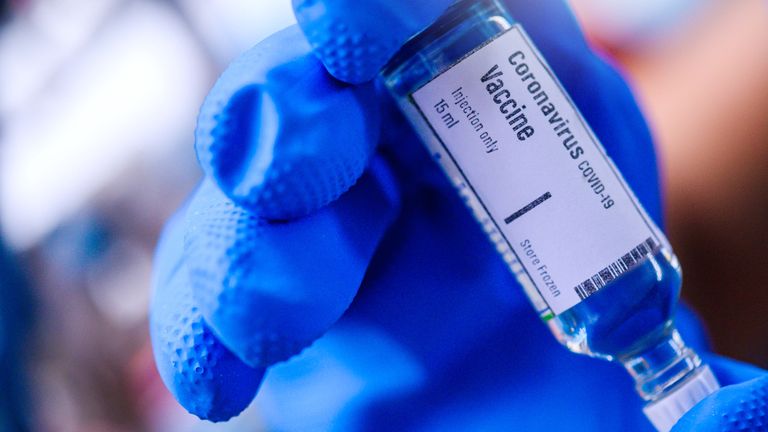Coronavirus: Oxford vaccine trial back on after pause for investigation over side effects
The Oxford coronavirus vaccine trials are back on after being suspended for an urgent investigation because a volunteer reportedly suffered potentially dangerous side effects.
The Medicines Health Regulatory Authority (MHRA) has said it is now safe to continue the trial.
In a statement, Oxford University said: “The ongoing randomised controlled clinical trials of the Oxford coronavirus vaccine CHAdOx1 nCoV-19 will resume across all UK clinical trial sites.
“Globally some 18,000 individuals have received study vaccines as part of the trial. In large trials such as this, it is expected that some participants will become unwell and every case must be carefully evaluated to ensure careful assessment of safety.
“On Sunday, our standard review process triggered a study pause to vaccination across all of our global trials to allow the review of safety data by an independent safety review committee, and the national regulators. All routine follow-up appointments continued as normal during this period.
“The independent review process has concluded and following the recommendations of both the independent safety review committee and the UK regulator, the MHRA, the trials will recommence in the UK.
The Briton who suffered the potentially dangerous side effects is expected to recover, but Oxford University says it “cannot disclose medical information about the illness for reasons of participant confidentiality”.
Earlier this week, a report from The New York Times suggested that the patient had been diagnosed with transverse myelitis – an inflammatory syndrome which affects the spinal cord and is often sparked by viral infections.
It is not uncommon for trials to be put on hold, but scientists are under pressure to develop a vaccine to help curb the pandemic.
Most serious adverse reactions that occur after vaccination are not related to the injection and are coincidental health problems, the World Health Organisation (WHO) has said.
The UK government’s chief scientific adviser, Sir Patrick Vallance, also told a Downing Street news conference that what has happened in the Oxford trial is not unusual.
When a vaccine is given to a large number of people, it is likely that a few people will experience a medical problem around the time of vaccination – but this does not prove any cause and effect.
In July, early results from the trial showed the vaccine was safe and produced strong immune responses in volunteers.
No unexpected adverse reactions were recorded at the time, although more than half of 1,000 participants reported mild or moderate side effects including fever, headaches, muscle pain and soreness at the injection site.
Phase three trials of the Oxford vaccine had recently expanded to the US, recruiting up to 30,000 adults.
Experts believe finding a vaccine is the only way for the world to return to normal in the future and there are currently nine vaccine candidates in larger phase three trials.
But it is not known how well a vaccine will work, and the top US infectious diseases expert Dr Anthony Fauci recently warned the chances of it being almost 100% effective are “not great”.
“We don’t know yet what the efficacy might be. We don’t know if it will be 50% or 60%. I’d like it to be 75% or more,” he said.
Source: Read Full Article



